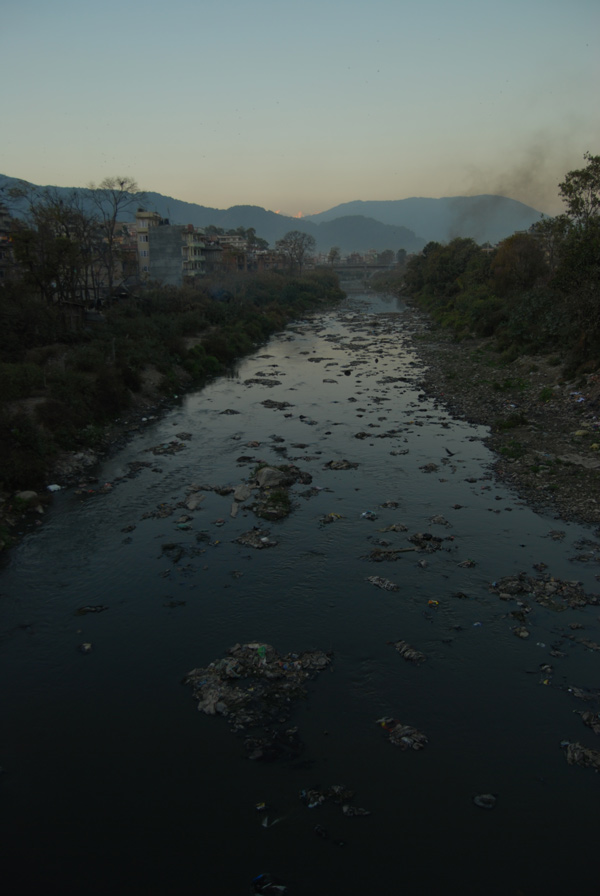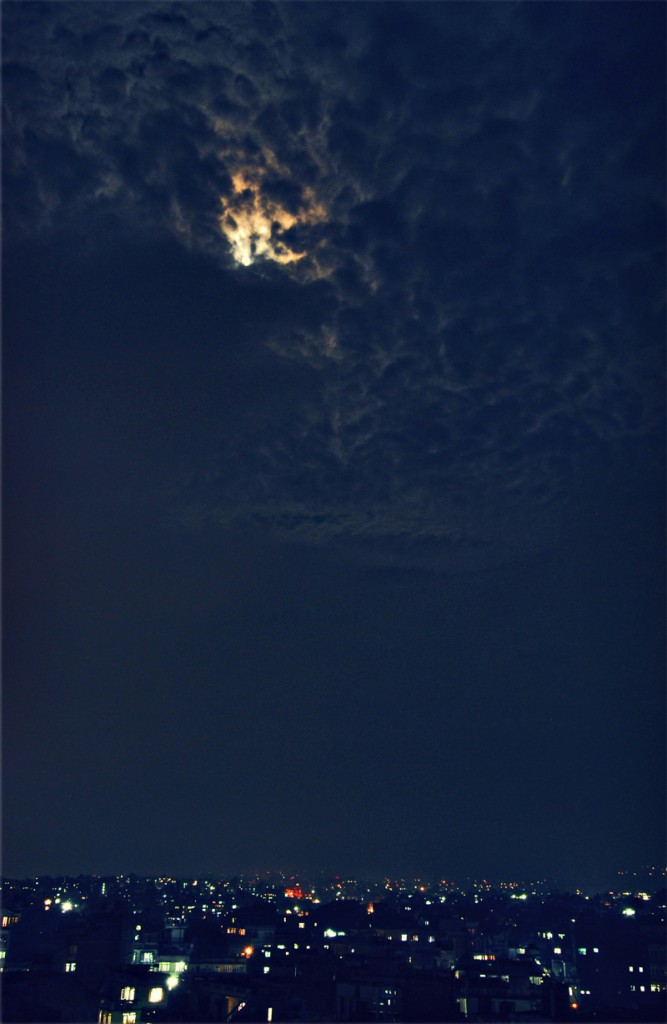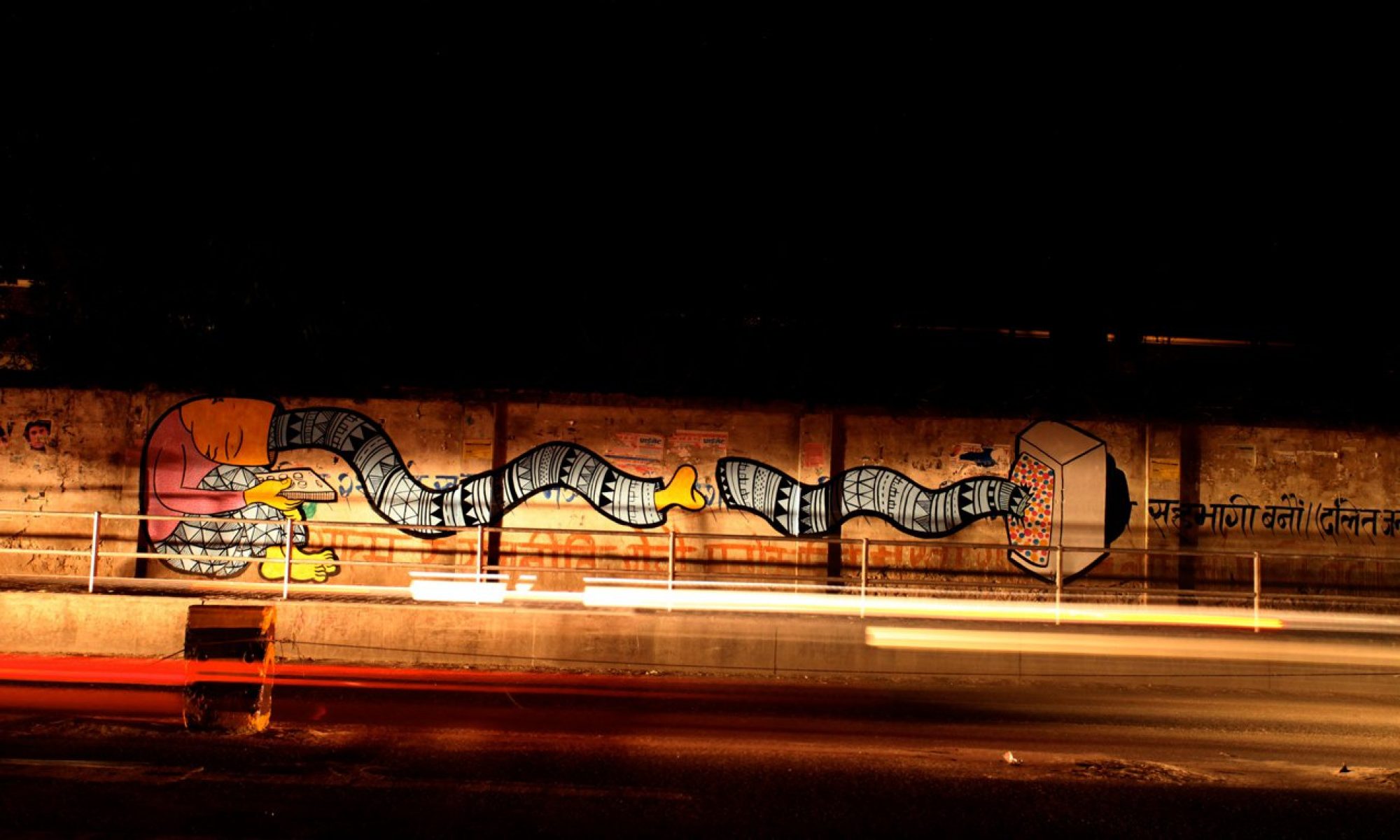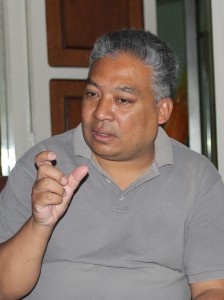 He grew with the river of Bagmati, the holiest and the dirtiest of them all. Alongside Bagmati, began the life of the slum-dwellers, the poorest of the poor with hungry eyes and empty stomachs. Everyday as the city folk drove their posh cars with their windows closed and air conditioners on, a little boy watched them in awe, wondering why he couldn’t sit on the same polished white leather seats. They make him angry; they sit comfortably with their big sunglasses perched on their noses, flipping through what looked like a book! The big round black glass looks strange to him, and he wonders why they always hide their faces.
He grew with the river of Bagmati, the holiest and the dirtiest of them all. Alongside Bagmati, began the life of the slum-dwellers, the poorest of the poor with hungry eyes and empty stomachs. Everyday as the city folk drove their posh cars with their windows closed and air conditioners on, a little boy watched them in awe, wondering why he couldn’t sit on the same polished white leather seats. They make him angry; they sit comfortably with their big sunglasses perched on their noses, flipping through what looked like a book! The big round black glass looks strange to him, and he wonders why they always hide their faces.
‘Perhaps, they are devils’, he wonders, devils that hide their face during the daytime so nobody can find them and kill them. He has heard these stories from Drug dai. He often tells Ram these stories before they go to sleep.
When he watches these devils read books, ‘A book! A book! Why?’ he wonders.
Seven-year-old Ram opened one once only to find strange squiggles and curves staring at him. ‘Ha! How stupid can these folks be’, he thought. He would rather spend his time running across Bagmati, jumping over her stones and the white foam of the river that burnt his legs. It smelled disgusting, he admits, but it was home for him, the only place where the police wouldn’t force him to scamper from. He slept under the stars night after night, next to Bagmati, his mother. When it rained, he hid under the large sheets of plastic he had collected with his tiny hands. They would have sold for 5-10 rupees, and the kabadiwala would have bought them gladly, but he couldn’t sell it, not his plastic, his only home.
‘Ram! Eh Ram’, it was the drug dai waking him this time.
‘Hazur dai!, he got up almost instantly. Drug dai was one of Ram’s favorite slum dwellers. He too slept next to Bagmati on some days, and whenever he did, he made sure Ram’s stomach was full with hot food. Ram didn’t dare call him drug dai though, he wasn’t supposed to know. It was the shopkeeper who often sold him 5 rupee noodles that told him to stay away from Drug dai.
‘Eh Pucche! Don’t hang out with that druggie Bahadur! He will make you like him.’
‘You understand don’t you?’ he said pulling his ears.
Seven-year-old Ram perfectly understood. ‘Hyatteri! Ok I won’t, Let me go now’, he pulled away.
‘Eh Ram! Do you have any money’, said Bahadur.
‘No dai. Only two rupees in my pockets’
‘SHIT SHIT SHIT SHIT!!!, Bahadur was stamping his feet.
‘Its alright pucche, go sleep.’
His body was hanging by the tree, as it swiveled in harmony with the blasting wind. Ram rubbed his eyes, once, twice, ‘no it couldn’t be’.
‘AHHHHHHHHHHHHHH someone help him. Bahadur dai, Bahadur dai’, he ran.
He touched his feet. COLD.
‘HELP, HELP HIM’, but no one heard him.
He ran all the way to the city.
‘POLICE DAI, POLICE DAI’
‘What is it now. You want to get arrested is it?’
Ram was sobbing now.
‘Police dai, Bahadur dai, tree, hanging’.
The policeman listened carefully. He understood.
‘Where’
‘Home. My home. My tree’
‘Where?’
‘I’ll take you’
No one knew what happened to Bahadur. No one cared but Ram. Ram cried under the tree, praying for his soul to be at peace. Bahadur had told him once that he was abandoned in the same river as Ram was. He, like Ram didn’t remember anything other than the river. ‘How did we survive? Who fed us?’ no one seemed to know.
The shopkeeper dai said they were abandoned when they were old enough to talk but they remembered nothing, no woman, and no man.
15-year-old Ram came everyday to visit his mother. She was dirty, discarded and untouchable like him. He worked nowadays as a labourer mixing cement, and building concrete homes for the touchables. With the little he made, he had rented a room with four other young boys like him. They had enough to eat one hot meal a day, and a place to sleep when the thunder shook the skies. Sometimes work dragged on till 8:00pm, sometimes 9:00 but never did he go home without visiting his mother. It was also the place he had cremated Bahadur dai, alone.
Watching the burning pyre of dead twigs from the very tree Bahadur had stood hanging, he felt he understood life better. ‘I was born alone, I will die alone’, and everyday as he watched human-relations, the mother and the child, the husband and the wife, the girlfriend and the boyfriend, he only felt sorry for them. He had loved once, unintentionally, his brother he would never recognize but only feel for, Bahadur.
Sometimes, he felt like he was waiting for his death, the day he would be liberated from the task of feeding his empty stomach.
top rated online casinos
Then one day sitting on the shores of foaming Bagmati, he met Peter.
The man touched his diseased mother like she was precious. The strong sting of rotting garbage didn’t bother him, and he didn’t make an effort to scurry as she rushed to touch him.
Stubbing out his cigarette, unbelieving of what he had just seen, Ram rushed to the shore where the stranger stood.
 ‘Who are you and why are you here?’ he said with a certain authority.
‘Who are you and why are you here?’ he said with a certain authority.
‘Peter, and you?’ he said calm and unthreatened by his tattered clothes.
‘What are you doing here?’ he repeated
‘Oh! I’m just a traveller who loves nature’, he said
‘But this is not nature. This is hell. Disaster’, said Ram.
‘ No its not. I can see she was beautiful once, and like everything beautiful, she has been ruined’, he said.
There was a certain truth to his words that Ram understood with his heart. He didn’t feel so cold anymore.
‘She still is, if you look at her and the all the tears and sacrifices she’s given’, he said unaware of the sprouting words from his heart.
‘Indeed’, said the stranger.
‘Love is a terrible and beautiful disease. It makes us give up all we have for those we love the most, and live with nothing but all the peace in the world’, he said.
Ram was shaken. All this while, he had assumed his mother to be only his, realizing little that she was the mother to this country, this nation who had stolen all her beauty from her.
‘My mother, my mother, oh she gave all her beauty for the comfort and satisfaction of her children. She is sick, disease-ridden, discarded by her own children, yet gushes in their happiness and fights for their livelihood’, he said.
This time he peered into the face of the stranger, only to see that it was so white, unlike anything he had ever seen before. He noticed that his clothes were tattered too, not as much as his own, but not the best either.
‘Peter, where are you from and what do you do?’ he asked.
‘Lets sit down’, said Peter as they both crouched down watching Bagmati gush tears of love.
‘ A Long time ago, I was a famous businessman. In a place called New York, I owned corporate houses, banks, and lived the richest life you can imagine. I worked relentlessly, day and night and became the source of envy to everybody. My life looked perfect to everybody. I had done everything I had dreamt of, owned everything that I wanted but inside I was hollow- empty and had begun to question my existence. Suddenly, I wanted to die. I was ready and before I could kill myself, I wanted to see the city I had given my life to for the last time. I dressed as a hippie-tourist and left to see the places I had never seen. I walked after a long time in my life, and saw things I had forgotten about. I saw poverty, children under the influence of heavy drugs in little alleys, petty thievery, and sick people with no money to pay for their medical bills and beggars. This was supposed to be New York, the city of dreams and here I was watching dreamless lives. I knew then that I hadn’t done anything. All the money in the world was pointless when there was a starving child sleeping hungry in some part of the world. I couldn’t be in New York or any famous part of that world for that matter, so I quietly shifted to Nepal where I have started a few schools today’, he said beaming.
‘Are you saying that life is only worth living if you live for somebody else?’ asked Ram, comprehending the rush of excitement in his dead-life.
‘Precisely’, said Peter. ‘That is why Bagmati lives’.






